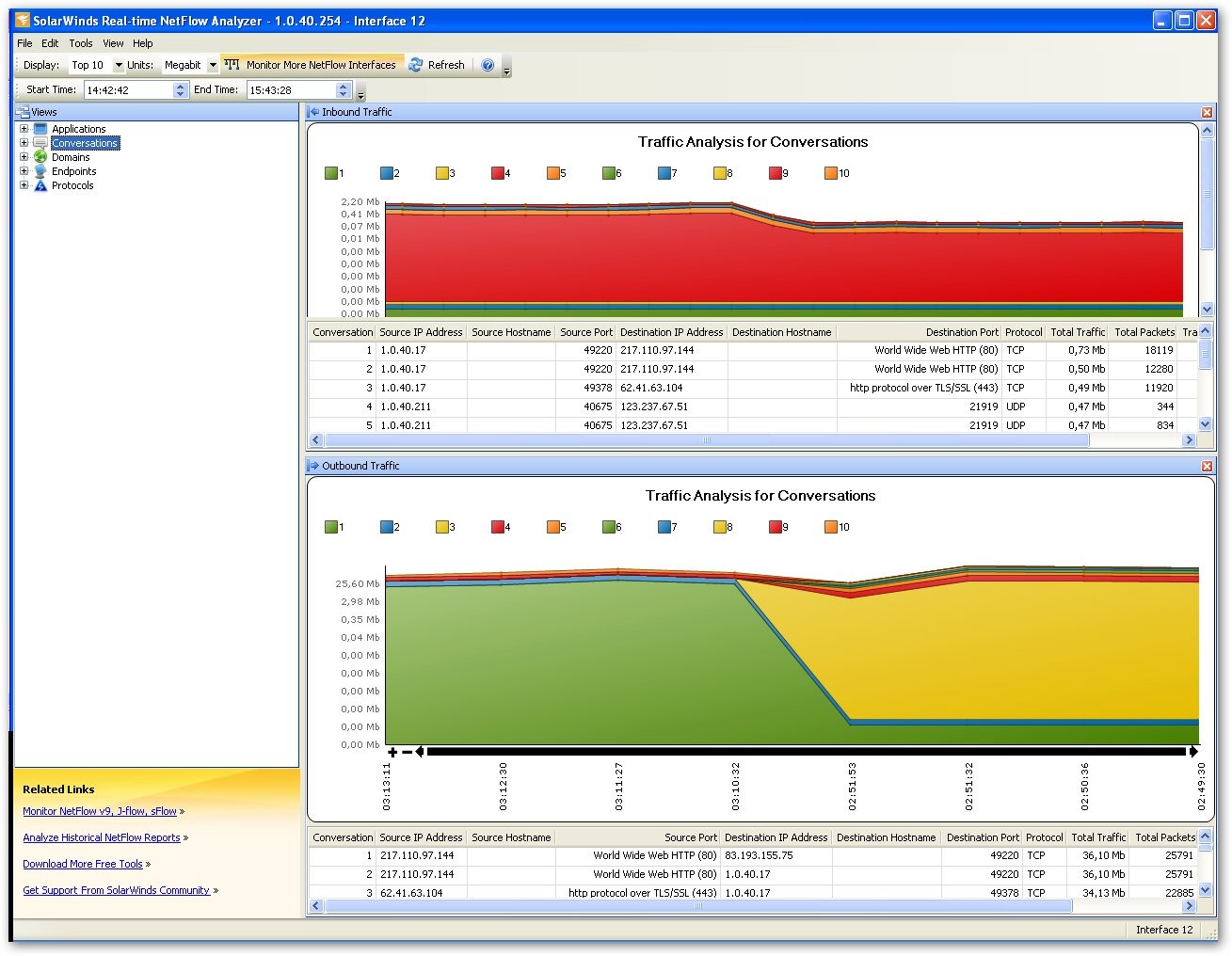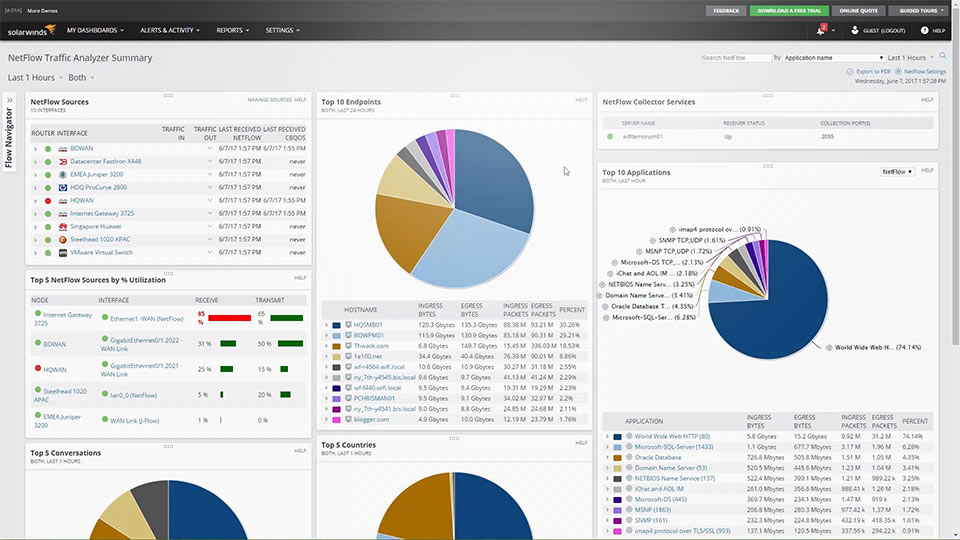
Proper use of a NetFlow traffic analyzer can reduce the number of hardware and software technologies needed to manage networks. Various organizations such as network operations, engineering, planning, architecture, and security can use NetFlow analysis as a primary source of intelligence. It helps network operators to determine where to apply Quality of Service (QoS) policies as well as how to optimize resource usage, and it plays a vital role in network security to detect Distributed Denial-of-Service (DDoS) attacks and other undesirable network events and activity. Analyzing NetFlow facilitates more accurate capacity planning and ensures that resources are used appropriately in support of organizational goals. A NetFlow analyzer is a tool deployed to perform monitoring, troubleshooting and in-depth inspection, interpretation, and synthesis of traffic flow data.

The ability to characterize IP traffic and understand how and where it flows is critical for ensuring network availability, performance, and security. Network operators can use NetFlow data to monitor bandwidth, determine network throughput, measure packet loss, and understand traffic congestion at a specific interface level. NetFlow is a protocol used to collect metadata about network traffic traversing a network device (such as a router, switch, or host).

An Overview of Netflow Analyzers and Other Network Traffic Monitoring Tools


 0 kommentar(er)
0 kommentar(er)
